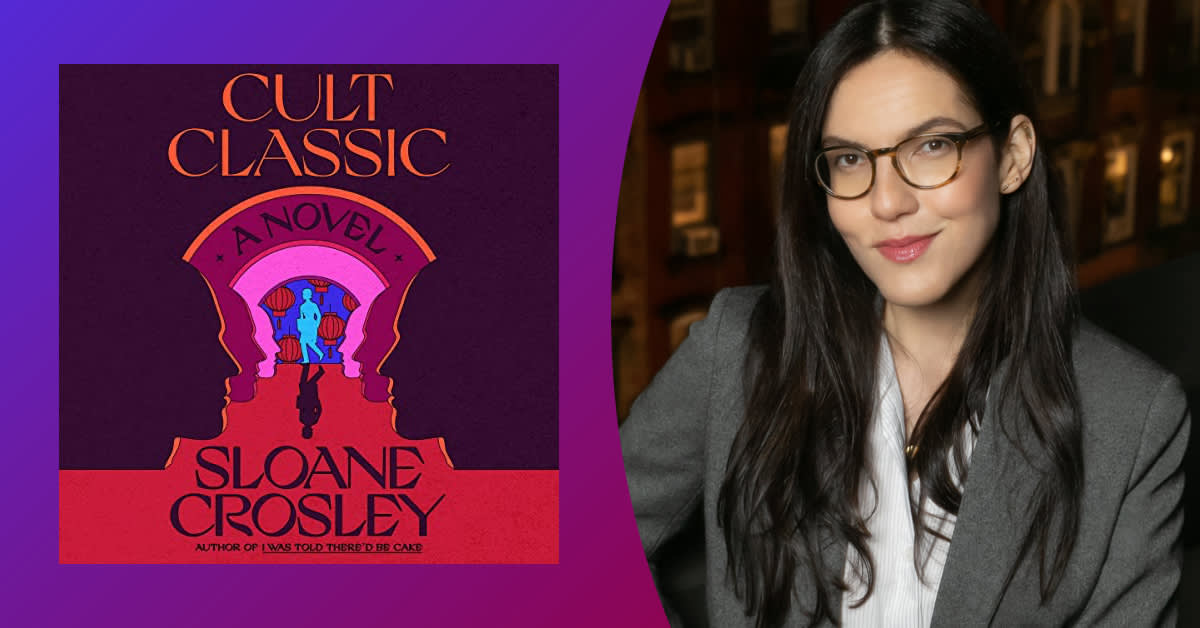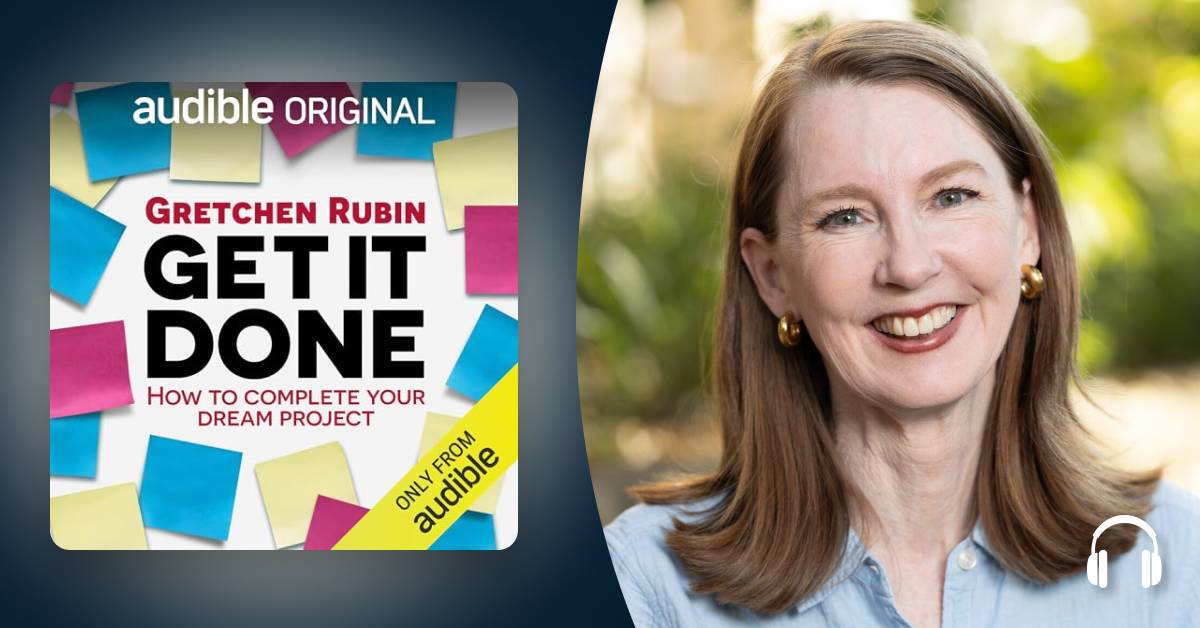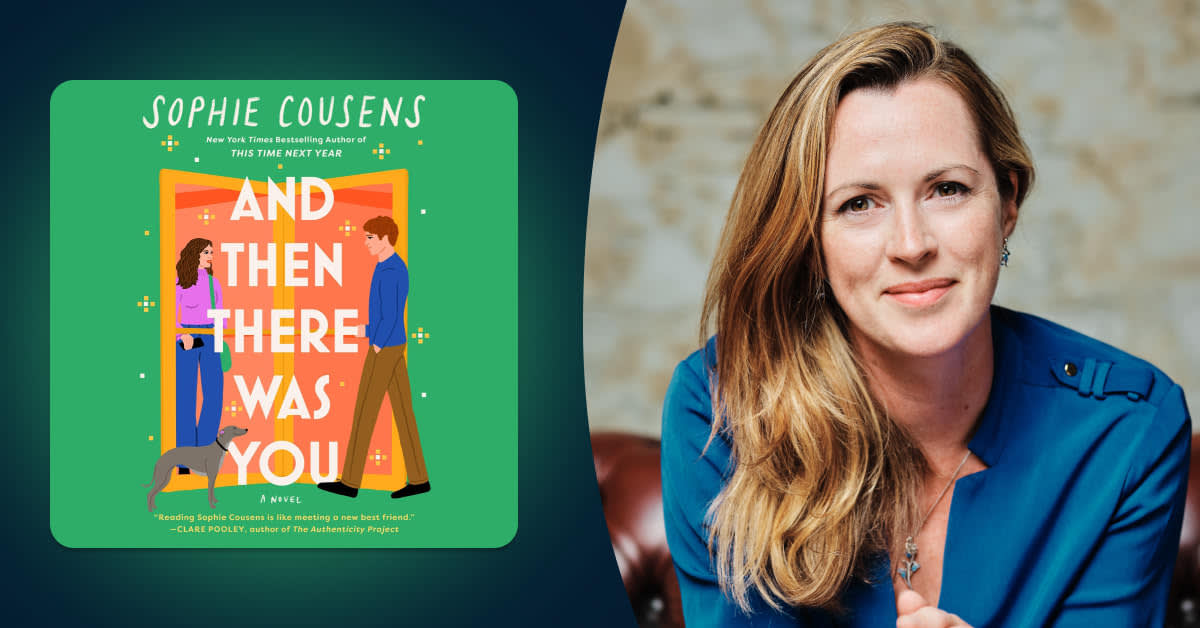In Sloane Crosley’s deliciously surreal new novel Cult Classic, a 30-something named Lola encounters a string of ex-boyfriends in an epic New York adventure that combines the infinite loop of Groundhog Day with the rom-com magic of Sliding Doors and the startup satire of Uncanny Valley. Bursting as it is with influences and ideas, Cult Classic's unique narrative voice could only come from Crosley, who also performs the audiobook. In the following conversation, she told us about the myriad themes and wild nights out that inspired both the novel and the audio recording.
Audible: Congratulations on your new novel! Cult Classic is a witty, sexy, mysterious, and mystical genre-bender that has a little something for everyone. What were some of your inspirations in writing it?
Sloane Crosley: It’s funny—this is quite a complicated question. In a way, Cult Classic is a comedy of manners that becomes something far more plot-driven, mystical and philosophical. Therefore, the answer to your question is: everything. Everything is the influence. The gestalt of life, both as a human and as a writer, a life spent absorbing books and culture and observing the machinations of romantic relationships and friendships in New York, specifically. But to narrow it down just a bit, I love dark romantic comedies, both in film and literature, as well as an element that makes a story a bit fantastic. Be it Muriel Spark’s Loitering with Intent, Alain de Botton’s books, or Groundhog Day.
“The answer to your question is: everything. Everything is the influence.”
At the center of the novel is Lola, a 30-something New Yorker who is engaged to be married when she runs into a truly eerie string of ex-boyfriends one night out in Chinatown. At times I couldn’t decide if this scenario sounded intriguingly tempting or a total nightmare. How did you feel about the premise initially, and did it evolve at all in the process of writing?
Part of what I was trying to achieve with Cult Classic was a seamlessness—or as close as I could manage—in its melding of various genre elements. I don’t really want one kind of book to “turn” into another. I’d rather have it all be the same book but with an element of surprise. In that spirit, sure, I asked myself what I would do if I were Lola. Would I, personally, consciously choose to run into everyone I have ever dated and in a condensed period of time? Lola is not me (I’m her fan but…yikes!) but I wondered if I would do as she does and dive headlong into this bizarre scheme. And the answer was always: yes. No matter how unhinged and uncomfortable the outcome. I’d be so curious to see if this “scenario,” as you say, would actually work. My curiosity would override the emotional consequences. The "total nightmare" of it, if you will.
“I think there should be a place in everyone’s life for heartbreak. A place for the mess of human connection. I would think we’d all live very undercooked lives otherwise.”
I love this quote from the novel: “Romance may be the world’s oldest cult. It hooks you when you’re vulnerable, scares the shit out of you, holds your deepest fears as collateral, renames you something like ‘baby,’ brainwashes you, then makes you think that your soul will wither and die if you let go of a person who loved you.” Do you think we need some measure of deprogramming from the cultishness of romance for more whole relationships, and is there a way to get there beyond the messy heartbreak of real-world experience?
Oh, no. Sorry, Charlie. It’s like they say: the only way out is through. Lola and Clive and many characters in this novel, actually, may feel this overwhelming need to sidestep heartbreak or to slough off the past. I’m different. I think there should be a place in everyone’s life for heartbreak. A place for the mess of human connection. I would think we’d all live very undercooked lives otherwise. This is hardly my revolutionary theory on romance. What reality television show contestant has not lamented their inability to “really put themselves out there"?
Did you do any research on cults for the novel that stood out—was there a book or piece of media you especially loved on the subject, or a lesser-known cult or cult fact that you found particularly fascinating?
I learned a fair bit about The Silva Mind Control Method, which was a meditation program that became a kind of minor religion in the ’60s. I didn’t know about it prior to starting Cult Classic. The man at the heart of it, José Silva, was an electronics repairman. But on the whole, I’d say that this is a comedic novel, and if you are interested in cults—as in, Margaret Singer interested or NXIVM documentary interested—heads up that this novel only has the patina of cultish danger. For the most part, the research I did was to look into the rhetoric of wellness and how, if it becomes extreme, it tips over into the nefarious and the brain dead.
“The night before the first recording was a friend’s karaoke birthday party. So, I stayed out late, singing and drinking whiskey…and then felt I had to do the same thing again before the next two sessions.”
You are a fantastic narrator of your own work! Can you share any details behind the experience of prepping for, recording, or reading Cult Classic?
Thank you. I had some experience, having read my three books of humor essays, I Was Told There’d Be Cake, How Did You Get This Number, and Look Alive Out There. Reading fiction, however, was much closer to acting than I’d anticipated. Two stories from the recording that stick out? About halfway through the book, I noticed a typo, stopped, and cursed. The engineer asked me what was wrong. I told him and he asked: "How do you even know?" I laughed and said, "Well, I wrote it." Up until that point, he had thought I was an actress. I really don’t think I’ve ever been so flattered in my life.
The other story is that, because of everyone’s schedules, I recorded the book over several weeks instead of three days in a row, as is standard. The night before the first recording was a friend’s karaoke birthday party. So, I stayed out late, singing and drinking whiskey…and then felt I had to do the same thing again before the next two sessions. For consistency. For professionalism. For science, really.




